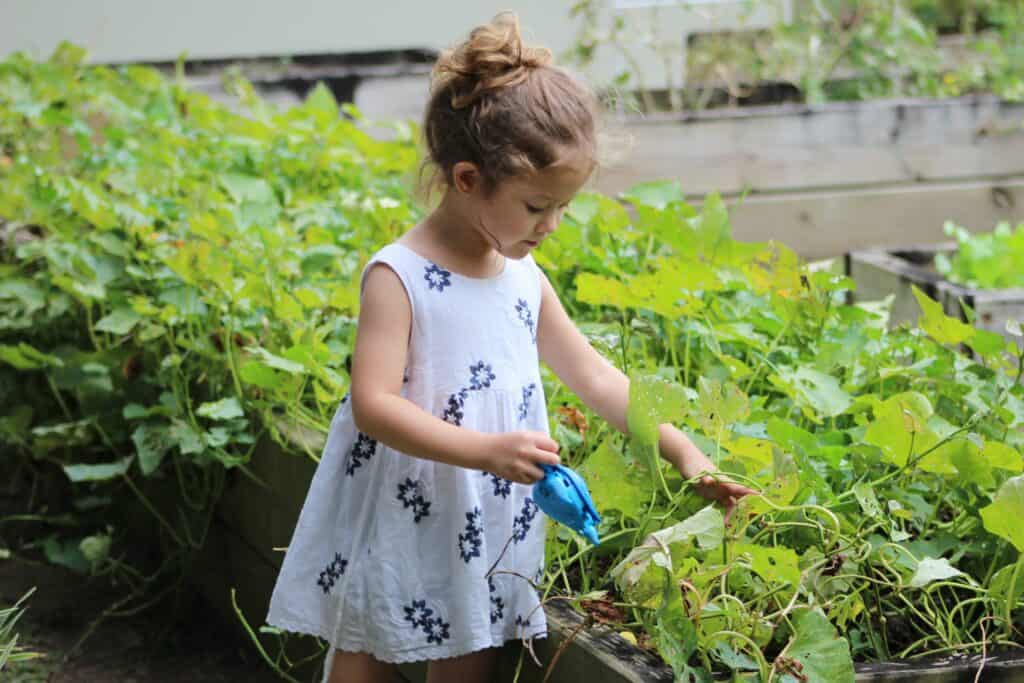Slow living is often associated with ASMR influencers with calming yogi voices. Or people who have successfully escaped to the country and are now fully immersed in nature.
I can’t tell you how many times I’ve been caught dreaming about such lifestyles (my YouTube homepage is proof).
But what if you’re not in that situation?
The reality is that many of us have demanding careers, little money, school, kids, or live in high-density cities with no access to the mountains or beaches.
This post shares 11 realistic slow living tips to bring some much-needed slowness to your hectic schedule no matter your situation.
First, what is slow living?
What is slow living?
Slow living is about slowing down the pace of life and taking the time to savour the moment instead of rushing through it. As we slow down, we open up opportunities for more connection, depth, joy, and peace. This can manifest in different ways depending on the person.
For some, it means meandering around the house without feeling the time pressures of life.
It might also mean taking up hobbies like gardening or drawing or simply spending more quality time with family and friends.
Whatever form it takes, slow living is about creating a sustainable and enjoyable lifestyle.

Minimalism and simplicity are often connected with slow living, as they both emphasise living with less and focus on what is truly important. But while they’re closely related to slow living, they’re not the same thing.
Minimalism is about getting rid of excess stuff and decluttering your life, while simplicity makes things easier and less complicated.
However, both minimalism and simplicity can help you live a slower, more intentional life, so it’s beneficial to understand the relationship.
11 slow living tips for the busy person
Below are some slow living tips you can start implementing today, even if you’re short on time or live in a fast-paced city.
1. Minimise your things
One of the key benefits of minimising your belongings is that it can help you to slow down your life.
For example, removing extraneous clutter from your home or workspace reduces the number of visual distractions that compete for your attention.
With fewer things vying for your focus, it becomes easier to appreciate each moment, engaging fully in whatever you’re doing at the time.
In addition, by removing excess possessions from your life, you can also simplify other aspects of your routine. For instance, not spending time managing a closet full of clothes gives you more opportunities for stress-relieving activities like going on walks or listening to music.
Ultimately, by getting rid of the things that weigh you down, you create more time and space for yourself to experience life’s rich moments at a slower, more intentional pace.
2. Find your go-to outdoor spaces
It’s critical to have a few outdoor locations where you can slow down and take a breath for yourself and your family to manage the stress of living in a bustling metropolis area.
Some examples of these outdoor spaces include:
- ++6Parks
- Quiet streets or cul de sacs
- Libraries
- Museums
- Chapels and churches
- Cemeteries
- Botanical gardens
Each of these spots offers something unique – a serene green space in the middle of the city, an oasis amidst the bustling crowds or constant traffic.

Whether it’s discovering a hidden garden oasis tucked away on a busy street corner or sitting amid ancient trees in a leafy park while listening to birds sing in the distance, these areas may provide much-needed getaways when you need to take time off from your hectic schedule.
And while they might not offer the same slow living opportunities as living in a rural area, they can still provide some respite from the endless action of city life.
3. Start your day slowly
If you’ve ever found yourself rushing through your morning routine in a frenzied state, only to feel like the rest of your day is a blur, you know how important it is to start the day off slowly.
When we treat our mornings like a to-do list, we set the tone for the rest of the day. We become impatient, stressed, and focused on checking things off our list instead of taking the time to enjoy the moment.
Everything changes when you give yourself enough morning time. You can enjoy every sip of coffee or tea, savour your breakfast, and even sneak in some meditation (more on that later).
You may even find that you can get more done throughout the day because you’re not rushing around constantly in a state of stress. So if you want to live slowly and savour every moment, start by giving yourself a slow morning routine.
4. Monotask instead of multitasking
If you’re like most people, you probably pride yourself on being able to juggle multiple tasks at once. But the truth is that multitasking is counterproductive.
When you try to do too many things at once, your attention becomes scattered, and you’re more likely to make mistakes.
Multitasking takes a toll. At home or at work, distractions lead to poor choices, painful mistakes, and unnecessary stress.
Gary W. Keller, author of The One Thing
On the other hand, monotasking allows you to focus all of your attention on one task, making you more productive and less error-prone.
For instance, if you’re working on a project for work, turn off your email notifications so that you’re not constantly being distracted by incoming messages.
And if you’re spending time with your kids, put away your phone and give them your full attention.
It may seem like a small change, but it can make a big difference in the quality of your work and the depth of your relationships.
So next time you’re feeling overwhelmed by all the things on your to-do list, try slowing down and taking on one task at a time. You might be surprised by how much more effective you are.
5. Take your entire lunch break
In our fast-paced world, it’s all too easy to wolf down your lunch at your desk or in the school cafeteria. In fact, 62% of American workers eat their lunch at their desks.
But taking a real break can do wonders for your mood and productivity. If you have an allocated hour for lunch, then take the full hour.

Walking around the block or sitting at a local park gives you the chance to clear your head and return to your work with fresh energy.
And if you take the time to prepare and eat your meal mindfully, you can give your body the nourishment it needs to power through the afternoon.
6. Turn off your music, podcasts and TV to appreciate silence
When it comes to embracing silence, I’ve always struggled. I’ve viewed silence as dull and lifeless — something to be avoided.
But I realise that there’s much beauty and wisdom in taking the time to slow down and cultivate stillness.
We’re constantly exposed to noises, from the TV blaring in the background to the music pumping through our headphones.
By making your room or house completely silent, you can appreciate the small sounds often drowned out by background noise. This includes the sound of your own breath, the crunch of leaves as you walk, or the soft murmur of a loved one sleeping next to you.
Additionally, enjoying a quiet meal can be a profoundly satisfying experience. Chewing noises and all, it can be incredibly calming to savour each bite without distractions.
Likewise, listening to birds or embracing the white noise of people in the heart of a busy city can help you appreciate the beauty of everyday life.
By disconnecting from the constant noise, we can reconnect with ourselves and experience the world around us in a whole new way.
So next time you’re feeling overwhelmed, take a break from the noise and give yourself a chance to relax and experience slow living truly.
7. Spend a manageable amount of time outside each day
Spending quality time outdoors is essential for slowing down and reconnecting as a family.
There are countless ways to enjoy nature, from discovering new plants and animals with the kids to simply sprawling out on your deck at night to gazing up at the stars.
Perhaps one of the most satisfying things about spending time outside is watching something new grow or bloom under your care. Whether it’s nurturing sunflowers or planting a small vegetable garden together, these activities foster a sense of wonder and curiosity and help us feel connected to our environment and each other as we tend to nature’s cycles together.

Regular outdoor activity has been shown to have numerous health benefits. Getting outside and going for brisk walks can boost mood, increase energy levels, strengthen your cardiovascular system, and promote better sleep (source).
By taking the time to connect with nature as a family regularly, we can deepen relationships with each other and reap all of the physical and mental rewards that come from slowing down, appreciating simplicity, and living mindfully in tune with our surroundings.
So take some time each day – maybe even just 15 minutes – to connect with nature as a family. You won’t regret it.
8. Find pockets of time to meditate
Our days are jam-packed with obligations and commitments, and our brains are always humming with ideas and distractions. To counteract this speed, set aside time for meditation.
By practicing meditation first thing in the morning, you can start the day with a sense of calm and focus. This allows you to seize the day with clarity rather than heading out into your daily activities feeling rushed and stressed.
Listen: Our Realistic Experiences With Meditation – Episode 065
Likewise, taking a few moments at the beginning or end of a busy workday can help you maintain focus and tackle tasks calmly and efficiently.
When you take some deep breaths before an important meeting or presentation, you’re more likely to stay positive, grounded, and confident; whereas if you head into important events feeling flustered or agitated, it can undermine your ability to perform well.
And when you find pockets of time for meditation away from work or school – whether it’s when sitting in your favourite park or on your porch – these precious moments allow you to pause amidst hectic schedules, recharge your mental batteries, and reconnect with nature.
In short, by finding short periods throughout your day to quiet your mind, you can slow down, appreciate life’s simple pleasures, and feel more prepared to take on whatever comes your way.
9. Give yourself more time to get to work or school
When it comes to living a more relaxed, intentional life, one of the simplest (yet often overlooked) strategies is to give yourself extra time in the morning.
Whether you are commuting to work or heading off to school, taking time each day to slow down and appreciate your surroundings can make a huge difference in your overall quality of life.

By leaving yourself an additional 30 minutes or more each morning, you can take the opportunity to stroll and pause along your way, enjoying everything from the fresh air and crisp fall foliage to the bright sun and bustling streets.
You can also walk where possible, choosing less-convenient routes that are better for your physical health and your mental wellbeing.
With these simple adjustments, you’ll start every day feeling refreshed and energised, ready not just to experience but also to fully appreciate all that nature and urban life has to offer.
After all, nothing compares to the beauty of slowing down just long enough each morning before rushing off into the fray.
10. Learn to say no (even if you’re a people pleaser)
Learning to say no and set boundaries is essential for anyone who wants to live a more quiet, intentional life.
For one thing, setting clear limits on your time allows you to focus more attention on your priorities and passions.
Whether you’re working on your vision for your life or the vision you have for your family, it’s critical that you take the time to pursue these things.
Another important reason saying no is so crucial for slow living is that it helps protect valuable time in our schedules.
Too often, we give in to pressure from friends and colleagues to commit to activities or obligations that pull us away from what truly matters.
By taking control of our schedules and setting clear boundaries around what we’ll accept and what we’ll reject, we can ensure that we always have room for ourselves, our families, and our most valued endeavours.
Perhaps most importantly, learning how to say no and set boundaries enables us to show up as our best selves when we commit to something.
Whether it’s volunteering at a charitable organisation or heading up an important work project, by setting clear expectations from the start about what we can offer and when those commitments need to be fulfilled, we can better ensure that everything runs smoothly.
After all, when we’re stretched too thin, it’s difficult to give anything our best effort.
11. Create more from scratch
One of the best ways to embrace slow living is to create more things from scratch.
When you bake bread or build a chopping board with your kids, you’re not only creating something unique and beautiful, but you’re also taking the time to learn new skills and connect with your hands and heart.
The process of creation is its own reward, and it’s a reminder that even the simplest things can bring great joy.
So next time you need a new pet blanket, take the time to sew it yourself. It may take a little longer, but the satisfaction you’ll feel will be well worth the effort.
The art of slow living: final thoughts
Although slow living may seem impossible with a jam-packed schedule and little time to spare, it’s not as difficult as it seems. All it takes is a bit of creativity and some simple adjustments to your routine.
With these 11 tips for slow living, you can start enjoying life’s simple pleasures while still achieving all your goals. So why not give slow living a try today? You might be surprised at how good it feels to slow down and savour every moment.
What are your favourite slow living tips? Let me know in the comments below.






I live in a condo and have a patio where I love to container garden. There is no earth, so I make do with containers. Now, with warm weather I sit in what I call my “sanctuary” in the morning and pray my devotions. If the temperature is comfortable, I even enjoy breakfast outside. It’s a joy to see my plants and flowers, the hummingbird at the feeder and feel the freshness of the morning. One more thing, I am easing into minimalism.
This is beautiful, Mary — thanks for sharing. Your sanctuary sounds like a peaceful space.